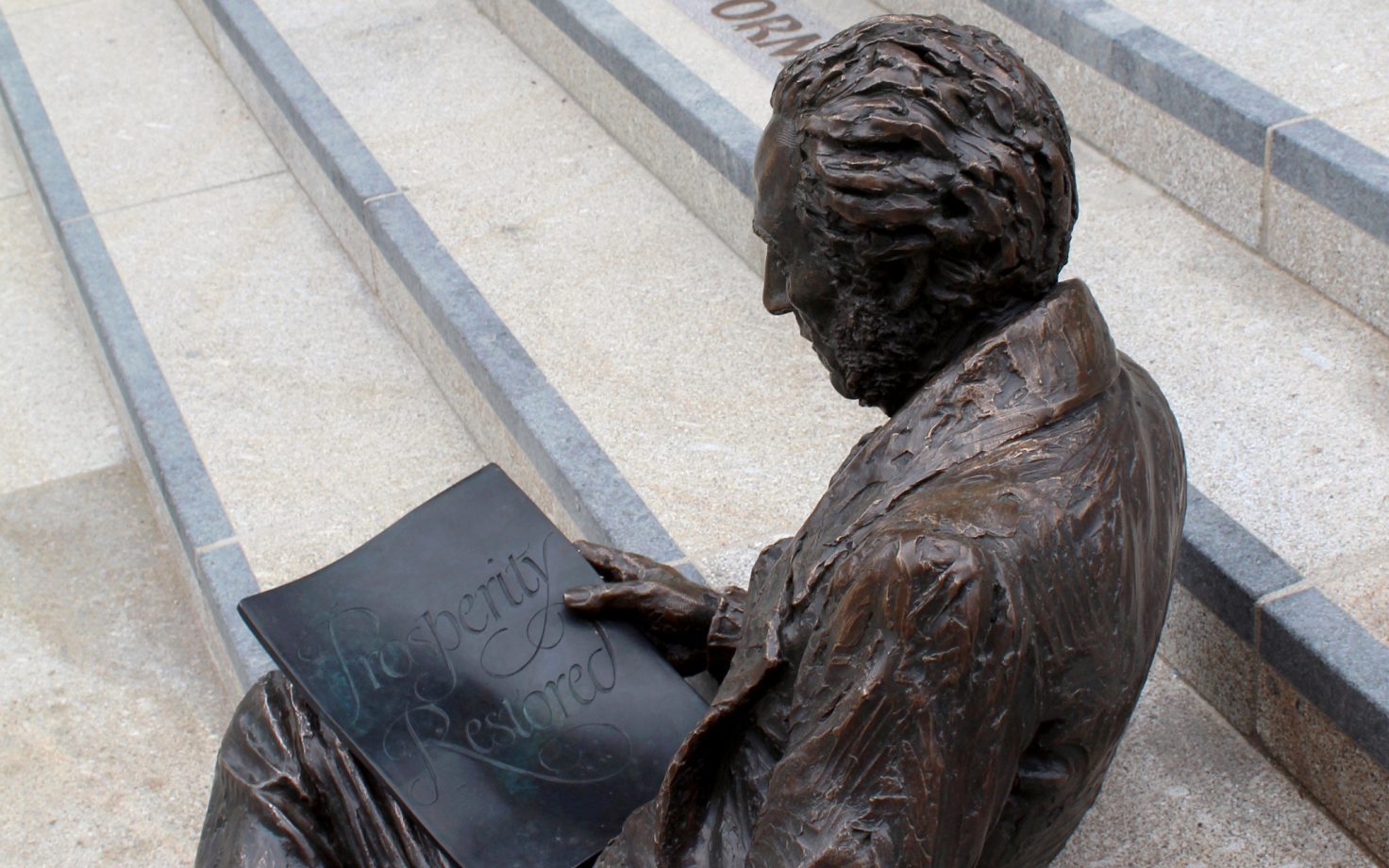Returning to the office

As we have imagined on behalf of Thomas Attwood
My oh my, how workplaces have changed!
Offices in Georgian times – during the first half of the nineteenth century – were stuffy and formal to the point of, dare I say it, irrelevance.
At least that was my impression from the occasional visit to the ‘workplaces’ of some of my contemporaries.
At some establishments morning dress was de rigueur, the use of the finest china an imperative, smoking jackets and pipes essential, along with a ready choice of formal wear for a post-dinner sojourn around St. Philip’s churchyard if you had eaten slightly too much in the afternoon and needed to walk it off.
While I did not care for such a regime myself, I know the office reflected some of the norms, priorities – and even hypocrisies – of the time.
It seemed almost as if work could only move forward as long as those in charge were well fed and watered while juniors would be kept almost starving, often stood outside the building itself and literally fighting for the next job.
These were important times, but not necessarily nice ones.
The juniors would help assemble work sheets and supply ink for pens (whose nibs were almost all exclusively made right here in Birmingham) to enable the pompous seniors to get on with their work.
What always grabbed my attention was that the ‘work’ being carried out seldom had to be completed immediately. Unlike today, deadlines were usually communicated far in advance, while at the end of each individual day, writing pads would be handed over to scribes to translate into something legible and delivered across town by an army of hundreds of delivery boys who were always stood on street corners along Colmore Row, Bennett’s Hill and Temple Row, waiting for the next job – and with it, a King’s penny, to come along.
The scribes took the place of what today would be called the electronic mail or phone message. And as the city navigates the aftermath of the Covid pandemic, we want people to return to the city centre to shop, work and spend leisure time. We want the city to be busy because this helps all of us.
Only by returning to normal will we be able to continue the renaissance of our city and build upon the foundations so many people have worked so hard to put in place.
It’s true that Covid has changed aspects of the office. People now expect a broader balance of amenities and facilities – more of a concierge approach – to their office accommodation, and Paradise is one of the few places in Birmingham that can deliver this in such an equally beautiful, as well as practical, setting.
The office environment of today is a much more intuitive and holistic experience designed to support people and help them do their best. What a more grown up world we enjoy today!
Nowadays it’s all about a work environment focused on wellbeing and health – or so I am told.
An environment that actually does the working person some good. Respecting the individuals within a workplace and their individual needs is central to looking after employees who are, after all, fellow human beings. Long gone, thank goodness, are the days of scribes and messenger boys hanging around on the streets at the mercy of the weather, or wayward ne’er-do-wells, waiting to earn a penny.
What has happened today, as far as I can see, is the maturing of a correct work ethic based upon much more egalitarian lines. A system of work and reward that supports the worker as well as the employer.
Surely, we’ve all realised by now that the only way we can achieve anything is by coming together and working together.
At least that’s the ethos I’m proud to say seems to have been built into Paradise. And long may it continue along those lines.